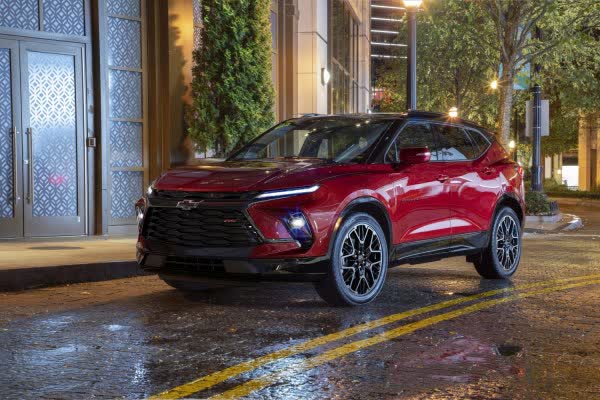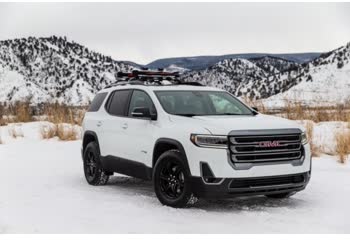Everything you need to know about specifications and performance - Chevrolet Blazer 2022 - 2.0 Turbo (231 Hp) AWD Hydra-Matic

Overview:
What is the engine capacity of a Chevrolet Blazer 2022?
The engine capacity of the Chevrolet Blazer 2022 is 1998.
Chevrolet Blazer 2022 How many horsepower?
The engine power of the Chevrolet Blazer 2022 is 231 Hp @ 5000 rpm..
What is the Chevrolet Blazer 2022 engine?
Chevrolet Blazer 2022 engine is LSY. (Click to see other cars using the same engine)
How much gasoline does a Chevrolet Blazer 2022 consume?
The Chevrolet Blazer 2022 consumes 9.8 liters of gasoline per 100 km
What is the recommended oil for a Chevrolet Blazer 2022 engine?
The recommended oil for a Chevrolet Blazer 2022 car engine is 0W-20.
What type of camshaft transmission system is used in a Chevrolet Blazer 2022 engine?
chain is used to transmit motion.
General:
Engine:
Performance:
Space:
dimensions:
Powertrain, Suspension and Brakes:
See also

Other generation.
Its production began in 1994 until 1998

Same engine. (LSY).
Its production began in 2020 until Now

Same engine. (LSY).
Its production began in 2020 until Now

Same production year and almost the same engine capacity.
Its production began in 2022 until Now

Write a comment